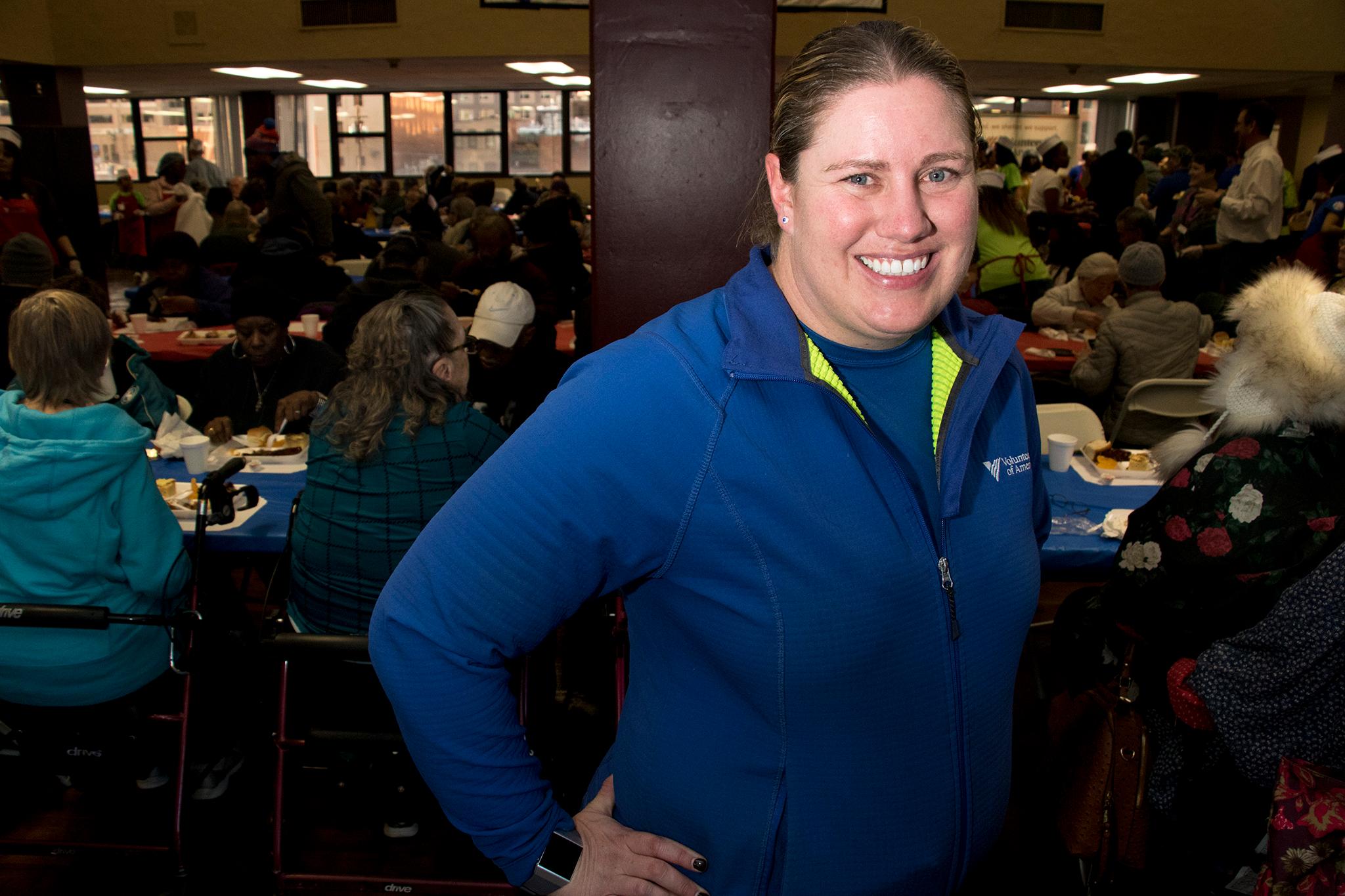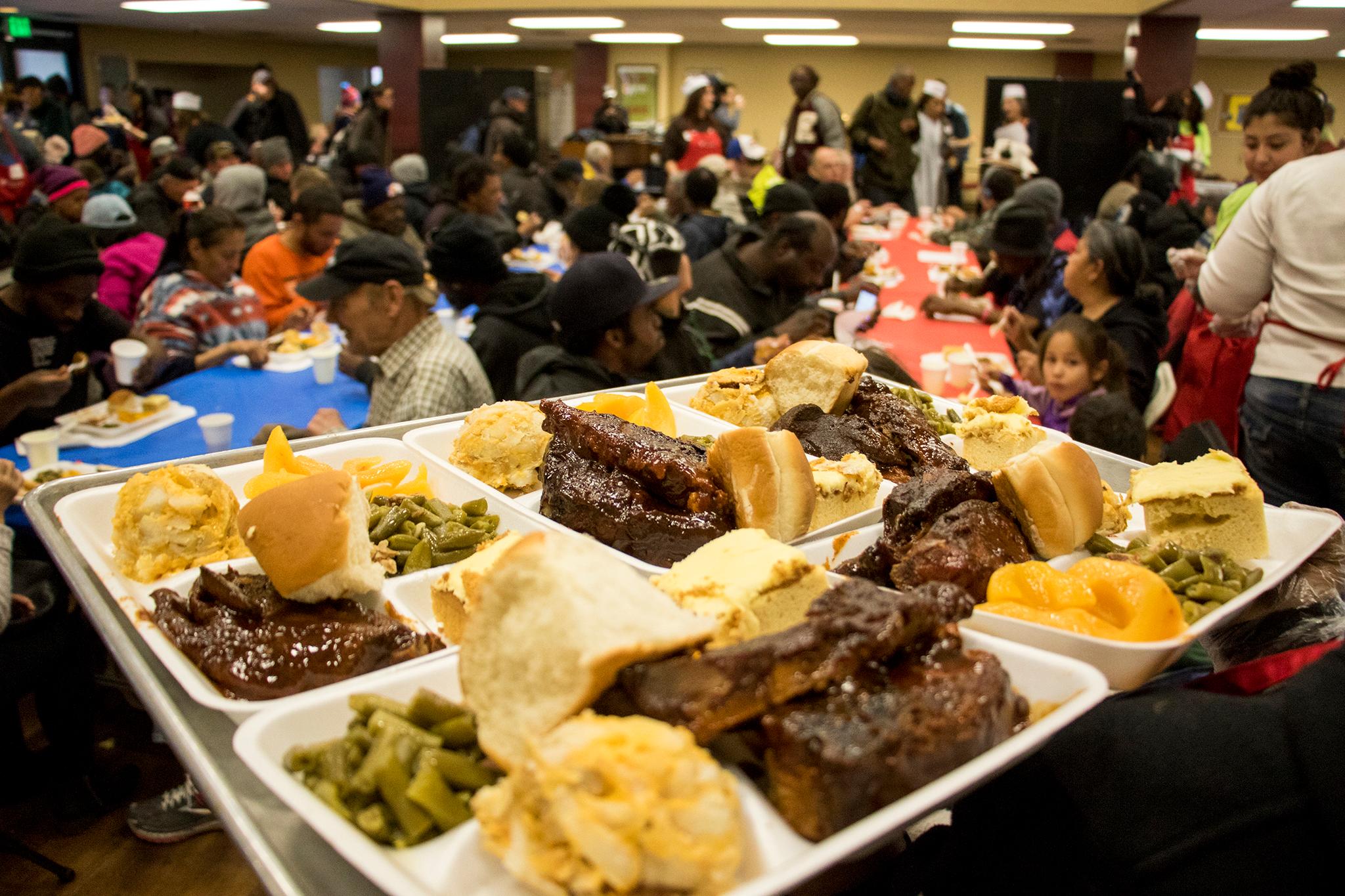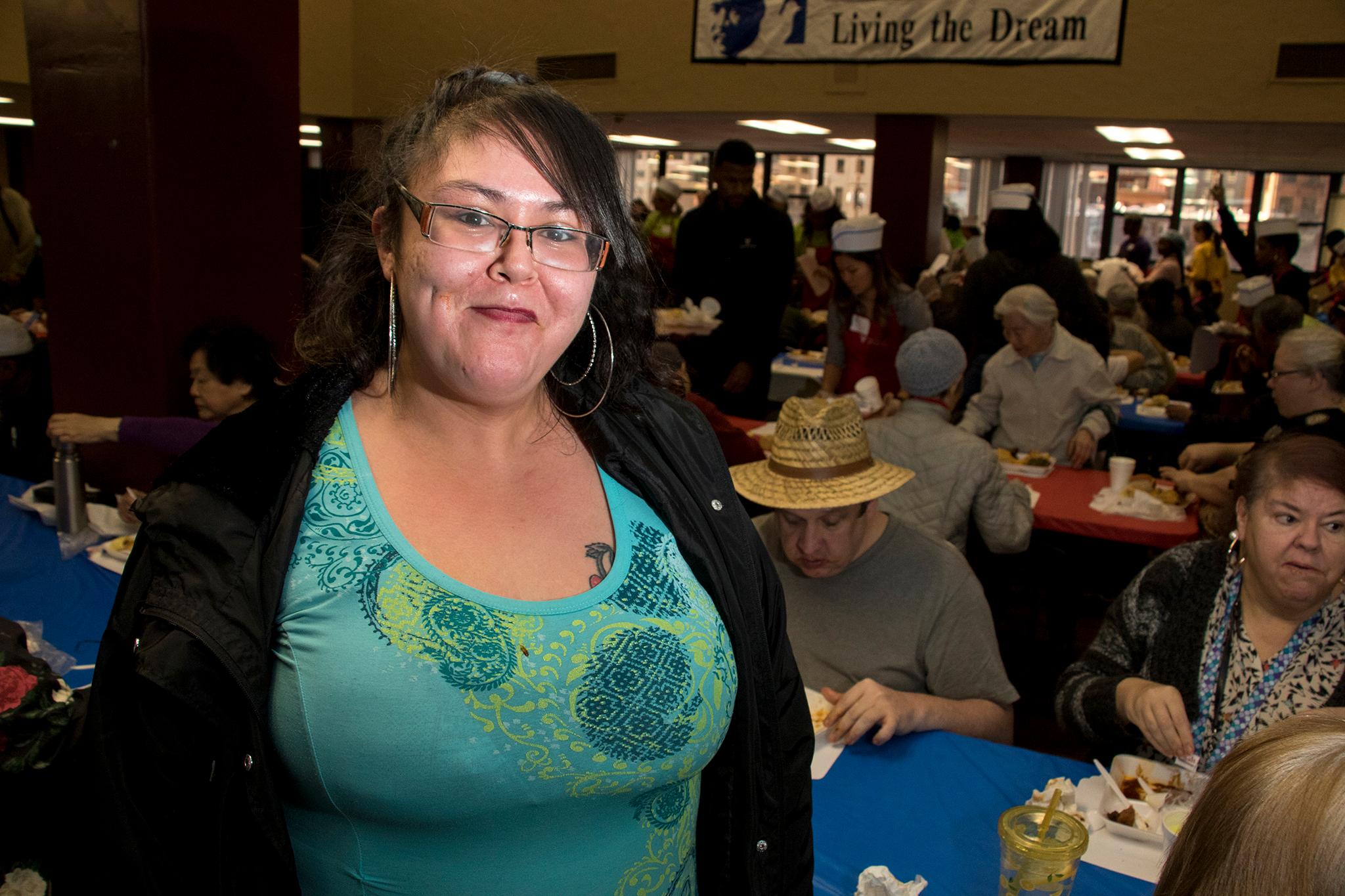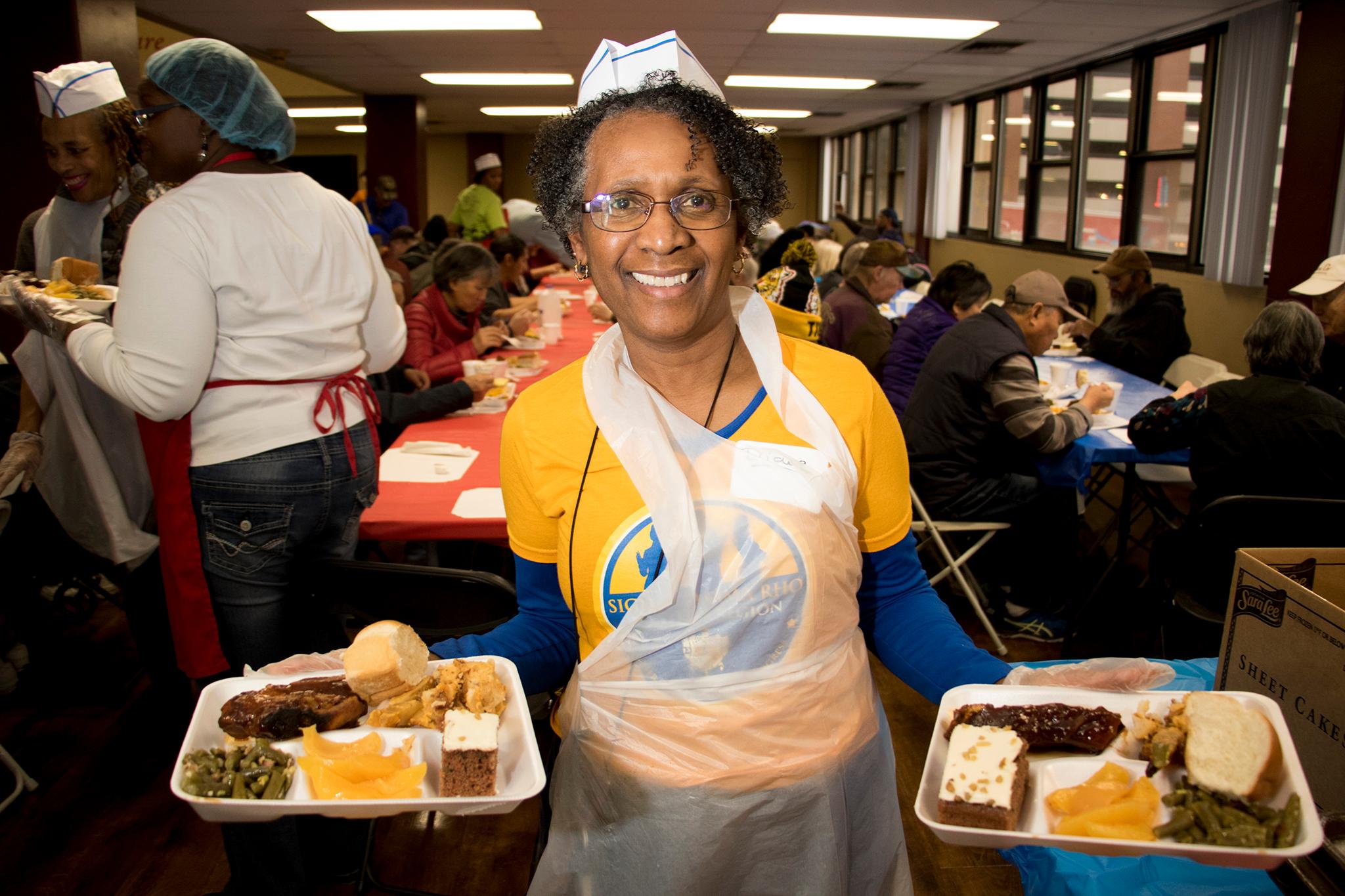When he saw the flyer in an Aurora Vet Center about Volunteers of America Colorado's "Dinner for Those Who Hunger" honoring Martin Luther King Jr., Chris Kennedy got on a bus and made his way to downtown Denver.
"I thought I'd come down early and offer some help," the homeless Vietnam veteran said once he reached the Sunset Park Senior Center about 1 p.m.
Bradley Gulley, director of volunteer services for the faith-based nonprofit, told Kennedy preparations were well in hand, then urged him to come back in two hours for barbecue, entertainment, and distribution of warm clothing for anyone in need.
Kennedy said he would be there, adding King is "a hero of mine."

In his last sermon before he was assassinated, King spoke of the need for America to take "positive and massive" action to address the tragedy of racism and racial injustice. He also condemned the Vietnam War as "one of the most unjust wars that has ever been fought in the history of the world." But mostly in his March 31, 1968 sermon at the National Cathedral, King was looking ahead to his next project, a multiracial war on poverty he linked to the campaign against racism and to his outrage at how much the money being spent to kill in Vietnam dwarfed what was going to help poor people, whether in Appalachia or India.
"The world in which we live is geographically one," King, who would die in Memphis three days later, said that day in Washington. "The challenge that we face today is to make it one in terms of brotherhood."
A spirit of brotherhood, resolve and celebration was evident at the senior center on the ground floor of a Volunteers of America complex for low-income seniors and people with disabilities. Gulley had been up early distributing flyers at the offices and centers of other groups that serve those in need. Gulley said chefs were prepared to feed at least 800.

Volunteers of America Colorado has been holding the dinner since 1985, the year Colorado made King's January birthday a state holiday. Michael James, the organization's vice president of marketing and development, said a colleague, Jim White, had come back from a meeting with Wilma J. Webb, then a member of the state legislature who had been instrumental in getting Colorado to honor King, about plans for celebrating the new holiday.
"We need to be doing something on this day," James quoted White as saying. A dinner made sense for an organization that provides housing, healthcare and other services, James said.
"It allows ... for people to come together at a table," he said. "People need to come together to affect change."
At the National Cathedral five decades ago, King said poor Americans "are invisible because America is so affluent, so rich." As part of that sermon, which we remember for the line about the arc of the moral universe bending "toward justice," King told Jesus's parable of Lazarus. King's telling focused on the rich man who went to Hell because he did not see and respond to Lazarus's poverty and suffering.
America, King said, had an opportunity "to help bridge the gulf between the haves and the have-nots. The question is whether America will do it. There is nothing new about poverty. What is new is that we now have the techniques and the resources to get rid of poverty. The real question is whether we have the will."
At the Denver senior center Monday, Tiffany Munoz came down early from her apartment in the Volunteers of America building. She knew from past years that lines can get long for what she described as an evening of "music, bringing people together and making sure nobody's going hungry. Because some of us that show up here don't have food."

Hours later, a banner bearing King's image and the words "living the dream" hung over a room brightened by red and blue cloths draped over tables and the green T-shirts of volunteers from Kaiser Permanente who helped serve the meal.
Members of the Sigma Gamma Rho sorority were among other volunteers. Clothing was distributed by arc. Freddy Rodriguez Sr., a regular at El Chapultepec, led the band.
Theresa Victoria Davis was among the last people to leave the dance floor. Her cane didn't slow her down.
"Heck no," the 80-year-old retired bus driver said. "It balanced me."
Davis, who lives nearby, said it's an event she loves.
"They serve good food. And I see a lot of people I haven't seen in some time.
"And they're gracious," she said of the volunteer servers.












